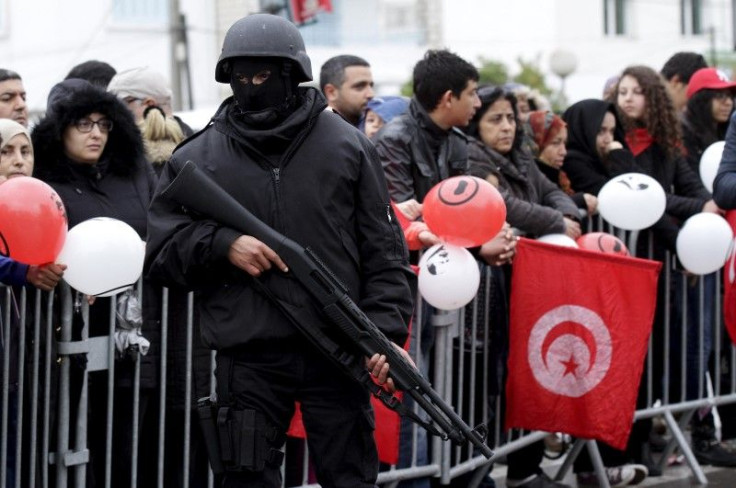Tunisia Museum Attack Update: 23 Suspects Linked To Al Qaeda-Affiliated Group Arrested

Tunisian authorities arrested 23 people in connection with last week’s attack on the Bardo museum in the capital city of Tunis on Thursday. All those arrested for involvement in the attack, which killed 21 people, are Tunisian nationals, according to media reports.
“Twenty-three suspects, including a woman, have been arrested as part of a terrorist cell,” Tunisia’s Interior Minister Najem Gharsalli reportedly said, adding that 80 percent of the cell has been dismantled. However, two Moroccans and an Algerian suspected of being linked to the attack are believed to be on the run.
Gharsalli also added that those arrested were connected to the al Qaeda-affiliated Oqba Ibn Nafaa brigade, which is believed to be active in the country’s border with Algeria. However, militants of the Islamic State group had earlier claimed responsibility for the March 18 attack.
“At this stage we cannot name [the group responsible],” Gharsalli said, according to a report by Agence France-Presse (AFP). “What is certain is that there are links with Oqba Ibn Nafaa.”
On Sunday, President Beji Caid Essebsi had announced that a manhunt was underway for a third attacker. Two of the other attackers -- identified as Yassine Laabidi and Hatem Khachnaoui -- were killed during a shootout with the police.
Following the attack, Prime Minister Habib Essid reportedly fired six senior police officials, including the Tunis police chief and the police chief for the Bardo area. Earlier, in an interview with the Paris Match magazine, Essebsi had acknowledged that the country’s security services “had not been thorough enough” in protecting the museum.
“One must realize that our administration has been weakened and disorganized by four years of poor governance since the Revolution (against the dictatorship of Ben Ali, in January 2011),” Essebsi reportedly said. “We’re acting on the problem, fast. Reforming the system back into shape is a key priority and results will come fast.”
© Copyright IBTimes 2024. All rights reserved.












